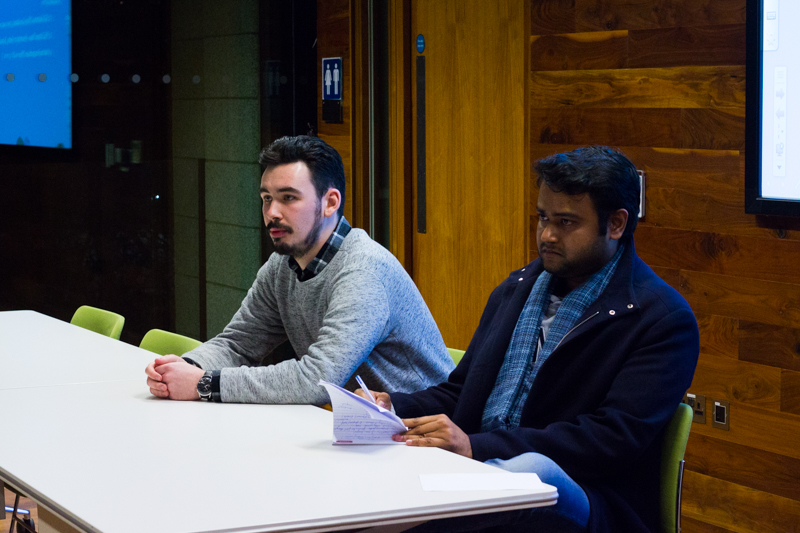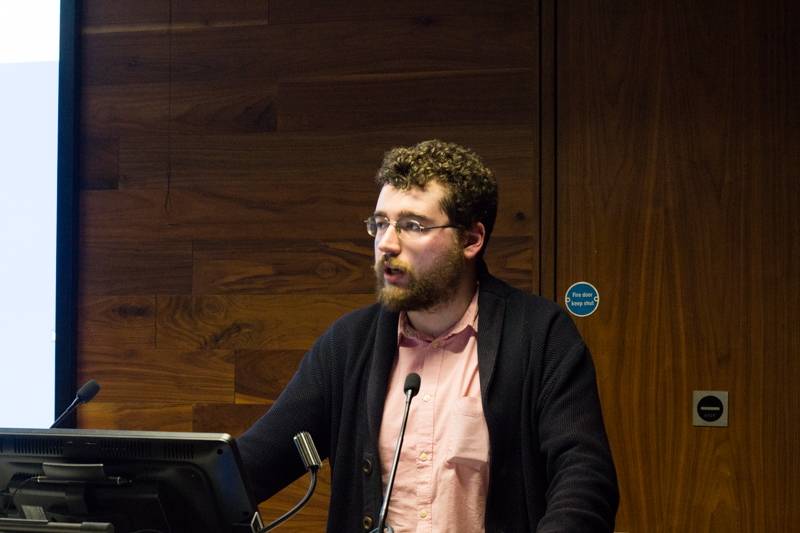Fittingly, with fees biting and frustrations growing, Graduates Students’ Union (GSU) candidates seemed to understand the mood of students, pitching themselves as the person to lead the union in a radical new direction.
Before a small but engaged crowd, uncontested presidential candidate Oisín Vince Coulter spoke rousingly about his aspirations for the role. He reiterated his belief that the postgraduate community “need radical change, and we need it now”.
Coulter spoke animatedly about manifesto points, such as fighting for improving the paying conditions for postgraduate workers and bettering the services currently available to the community. He voiced again his enthusiasm for taking industrial action if College continues to increase postgraduate fees.
Ignoring the allocated speaking time, Coulter touched on numerous national issues such as the shortage of affordable accomodation and higher education funding. “We can think national and act local”, he told those present, before expressing his dissatisfaction at the expensive accomodation options Trinity has presented to postgraduate students.
The presidential candidate emphasised his experience with the workings of Trinity and college life. “I’ve been around for quite a while, I’m not going to lie”, he mused. Coulter mentioned his past involvement with Trinity News, the Publications Committee and Students Against Fees, amongst others.
In quite a varied question and answer session, Coulter fielded questions about issues ranging from lack of engagement to the refugee crisis. Trinity College Dublin Students’ Union (TCDSU) President Kevin Keane asked perhaps the bluntest question of the evening “USI. What’s the plan?” Postgraduate students have had a historically rocky relationship with the union, with incumbent GSU President Shane Collins lobbying for better representation at the national union.
Coulter restated his belief – a key point in his manifesto – that the body has not been strong on postgraduate issues: “Frankly, what USI have done so far has not been good enough.”
Vice President
Candidates for the role of GSU Vice President differentiated themselves from one another for the first time tonight, despite the many similarities in their respective manifestos.
Farrell addressed similar issues to those discussed at last night’s hustings, once again detailing his manifesto points. In what’s quickly becoming a theme of his campaign he stressed his experience, perhaps hoping to appeal to the union-friendly crowd.

“It’s time to think bigger, it’s time to think bolder”, promised Dr Gogoal Falia, emphasising the arguably more ambitious nature of his own manifesto in a speech that was once again confident but lacking a little in substance.
Falia, if anything, began to emerge as the “outsider” candidate, replying to questions with an off-the-cuff feel. Answering a question on school-specific issues he promised to “kick ass and take names”. Farrell’s answers were perhaps more considered, and he responded to the issues raised with confidence and assurance. If his responses were at times less crowd-pleasing than than Falia’s, he carried them off with a sense of assuredness.
Some of the ferocity of this week’s #TakeBackTrinity campaign seemed to spill over into tonight’s proceedings. A question about the possibility of a postgraduate strike in response to fee increases seemed to create a sense of tension, and candidates’ answers were rather politically charged. “We have been silent for too long”, argued Falia, while Farrell claimed that strike action could be necessary “to show the students are willing to stand up and be counted”.
In spite of the poor attendance, GSU candidates spoke confidently ahead of voting closing on Friday. Tonight’s hustings before a small crowd of student politics devotees showed that the issues faced by postgraduate students are just as pressing, if not as well-publicised, as those facing the college community as a whole.







